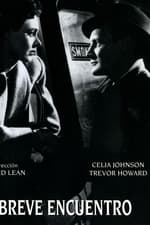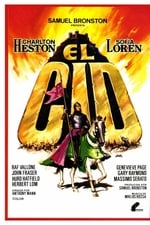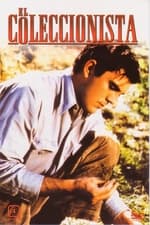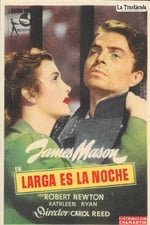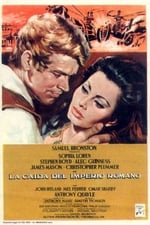Personiskā informācija
Pazīstams Par Camera
Zināmi darbi 43
Dzimums Vīrietis
Dzimšanas diena augusts 21, 1913
Nāves diena augusts 16, 1981 (67 years old)
Dzimšanas vieta Alexandria, Egypt
Zināms arī kā
- Bob Klasker
- Bob Krasker
Satura aizpildīšana
100
Yes! Looking good!
Piesakieties, lai ziņotu par problēmu
Biogrāfija
Robert Krasker, BSC was a cinematographer and feature film Director of Photography who worked on more than sixty films in his career.
He was born in Alexandria, Egypt during a business trip by his parents Mathilde and Leon Krasker from Western Australia to Europe and back and his birth was registered in Perth, Western Australia after their return. The Krasker family lived and operated their pearl trading business out of Denham in Shark Bay and Subiaco in Perth. After Leon died in an accident in Shark Bay, Mathilde had to consider the children's educational needs so moved the family back to Paris where she and Leon had been educated as refugees from eastern Europe. Krasker completed his secondary schooling in Paris then studied art there in 1929 before enrolling in Professor Robert Luther's celebrated photograph course at the Photohändler Schule of the Technische Hochschule, later Technische Universität, in Dresden. He credited his education there for his fast start in the film industry at Les Studios Paramount in Joinville-le-Pont in the south-east of Paris and rapid ascension as the youngest Director of Photography of his era. Krasker moved to England from Paris in 1931 and worked there in that year on his last film as camera assistant to Philip Tannura, Service for Ladies, produced and directed by Alexander Korda. Korda invited him to work at Korda's London Films, where he was apprenticed to French Director of Photography Georges Périnal , becoming a senior camera operator then a Director of Photography in his own right.
To say that Krasker's work was "strongly influenced by film noir and German Expressionism" is an oversimplification. It elides his art and photography education in Paris and his apprenticeship to Georges Périnal working as his camera operator on a range of very different films including The Rise of Catherine the Great (1933), Things to Come (1935), Rembrandt (1936), I, Claudius (1937 but unreleased), The Drum (1937), The Four Feathers (1938), The Thief of Bagdad (1939) and more. Robert Krasker's most notable films as Director of Photography included Henry V (1944) for Laurence Olivier, Uncle Silas (1947), directed by Charles Frank and The Third Man (1949), for which he won an Oscar, and Odd Man Out (1947), both for director Carol Reed, as well as Brief Encounter (1945) for David Lean and Another Man's Poison (1951) for Irving Rapper, and more. Despite Krasker's brilliant and atmospheric work on Brief Encounter (1945), Lean sacked him from his next film, Great Expectations (1945), because he and producer Ronald Neame were unhappy with the handling of Krasker's much-celebrated marsh scenes at the beginning of the film. Robert Krasker's later films included Romeo and Juliet (1953) for Renato Castellani, Senso (1953) for Luchino Visconti and The Quiet American (1957) for Joseph L. Mankiewicz and The Criminal (1960) for Joseph Losey as well as the widescreen black and white drama Billy Budd (1961) for Peter Ustinov and the widescreen Technicolor epics Alexander the Great (1955) for Robert Rossen, Trapeze (1955) for Carol Reed, El Cid (1961) for Anthony Mann, The Fall of the Roman Empire (1963) for Anthony Mann and The Heroes of Telemark (1965) also for Anthony Mann.
Robert Krasker, BSC was a cinematographer and feature film Director of Photography who worked on more than sixty films in his career.
He was born in Alexandria, Egypt during a business trip by his parents Mathilde and Leon Krasker from Western Australia to Europe and back and his birth was registered in Perth, Western Australia after their return. The Krasker family lived and operated their pearl trading business out of Denham in Shark Bay and Subiaco in Perth. After Leon died in an accident in Shark Bay, Mathilde had to consider the children's educational needs so moved the family back to Paris where she and Leon had been educated as refugees from eastern Europe. Krasker completed his secondary schooling in Paris then studied art there in 1929 before enrolling in Professor Robert Luther's celebrated photograph course at the Photohändler Schule of the Technische Hochschule, later Technische Universität, in Dresden. He credited his education there for his fast start in the film industry at Les Studios Paramount in Joinville-le-Pont in the south-east of Paris and rapid ascension as the youngest Director of Photography of his era. Krasker moved to England from Paris in 1931 and worked there in that year on his last film as camera assistant to Philip Tannura, Service for Ladies, produced and directed by Alexander Korda. Korda invited him to work at Korda's London Films, where he was apprenticed to French Director of Photography Georges Périnal , becoming a senior camera operator then a Director of Photography in his own right.
To say that Krasker's work was "strongly influenced by film noir and German Expressionism" is an oversimplification. It elides his art and photography education in Paris and his apprenticeship to Georges Périnal working as his camera operator on a range of very different films including The Rise of Catherine the Great (1933), Things to Come (1935), Rembrandt (1936), I, Claudius (1937 but unreleased), The Drum (1937), The Four Feathers (1938), The Thief of Bagdad (1939) and more. Robert Krasker's most notable films as Director of Photography included Henry V (1944) for Laurence Olivier, Uncle Silas (1947), directed by Charles Frank and The Third Man (1949), for which he won an Oscar, and Odd Man Out (1947), both for director Carol Reed, as well as Brief Encounter (1945) for David Lean and Another Man's Poison (1951) for Irving Rapper, and more. Despite Krasker's brilliant and atmospheric work on Brief Encounter (1945), Lean sacked him from his next film, Great Expectations (1945), because he and producer Ronald Neame were unhappy with the handling of Krasker's much-celebrated marsh scenes at the beginning of the film. Robert Krasker's later films included Romeo and Juliet (1953) for Renato Castellani, Senso (1953) for Luchino Visconti and The Quiet American (1957) for Joseph L. Mankiewicz and The Criminal (1960) for Joseph Losey as well as the widescreen black and white drama Billy Budd (1961) for Peter Ustinov and the widescreen Technicolor epics Alexander the Great (1955) for Robert Rossen, Trapeze (1955) for Carol Reed, El Cid (1961) for Anthony Mann, The Fall of the Roman Empire (1963) for Anthony Mann and The Heroes of Telemark (1965) also for Anthony Mann.
Camera
|
|||||||||
|
|||||||||
|
|||||||||
|
|||||||||
|
|||||||||
|
|||||||||
|
|||||||||
|
|||||||||
|
|||||||||
|
|||||||||
|
|||||||||
|
|||||||||
|
|||||||||
|
|||||||||
|
|||||||||
|
|||||||||
|
|||||||||
|
|||||||||
|
|||||||||
|
|||||||||
|
|||||||||
|
|||||||||
|
|||||||||
|
|||||||||
|
|||||||||
|
Aktiermāksla
|
Komanda
|


